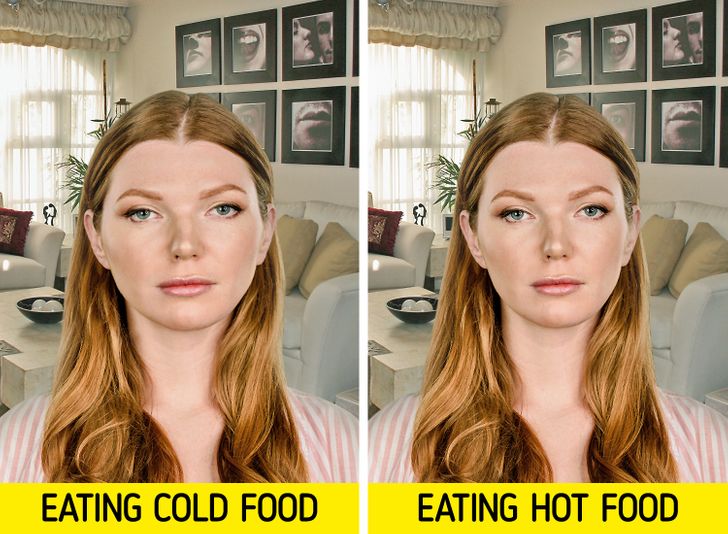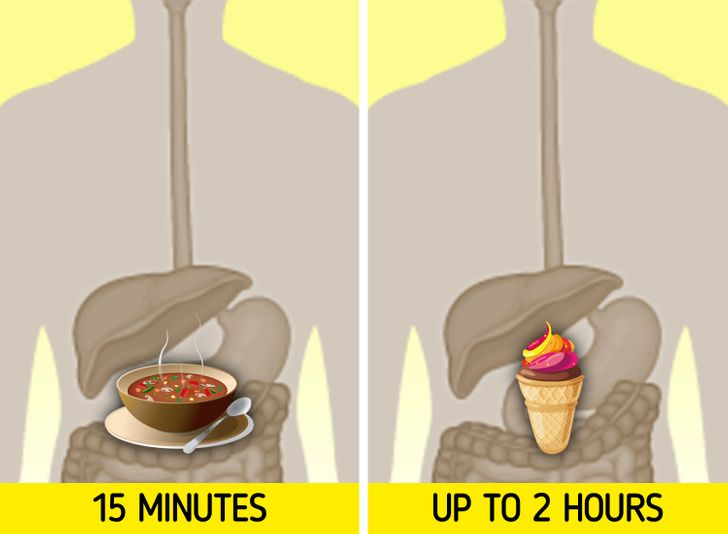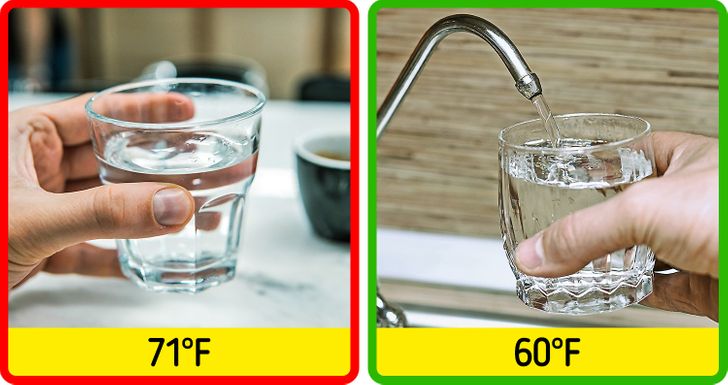Ice cream is much sweeter when cold, while ham is more savory when eaten warm. However, the difference in taste is only one aspect of the hot vs. cold debate. That’s why we decided to dig deeper and find other facts about how hot and cold foods affect our bodies.
And you can find out all about them if you stick around, we promise you’ll find some surprises. We did a little research and found out how hot and cold foods affect our bodies in both negative and positive ways.
Those Who Choose Cold Meals Consume More Calories

As a recent study showed, there is a misconception that hot food has more calories because it fills you up faster. However, researchers have found that people who choose cold dishes over hot foods tend to consume more calories.
To be more specific, they consume at least 31% calories, at least 37% fat, and more than 22% carbohydrates. This problem was even more noticeable in people who suffered from obesity, and one of the proposed solutions would be to add a hot plate along with a cold salad.
Our Body Has More Trouble Digesting Cold Food

The way our bodies digest food is by bringing it to our core temperature. This means that when we eat something cold, our body has to work twice as hard to first heat the food and then digest it.
For example, a hot soup takes only 15 minutes to be digested by the stomach. On the other hand, dairy products, especially ice cream, can take anywhere from 30 minutes to 2 hours.
This does not mean that you should stop eating cold foods, like fruits and vegetables, in particular, are better to eat raw. What you can do with other cold dishes is keep them in your mouth longer so the enzymes start breaking them down as you heat them.
Hot Food Tends To Be More Nutritional

In reality, hot foods are more easily digested and all nutrients are absorbed by the body much more quickly as a result. Also, when some vegetables, such as tomatoes, are cooked, the number of lycopene increases.
Also, hot cereals like oatmeal are high in fiber and not coated in sugar like cold cereals usually are.
However, a downside to cooking fruits and vegetables is that the vitamins melt. So the best thing you can do is cook them as little as possible.
No matter how you choose to cook them, keep in mind that they don’t need to be like mush, just a little crunchy.
READ RELATED: Recovering alcoholic shows off incredible transformation as he celebrates five years of sobriety
Cold Water Is Absorbed Faster Than Hot

It is said that cold water empties from our stomach much faster and is, therefore, better absorbed than when it is hot. Another benefit is that cold water helps increase the endurance of those who train daily or very frequently.
Also, lukewarm water has been found to cause you to drink smaller amounts, which can lead to dehydration. On the other hand, drinking relatively cold water (16 ° C or 60 ° F) is considered the best absolute temperature.
This is because it was found that people drank more water at this temperature and sweated less. However, you should be very careful when drinking cold water if you suffer from a disease that affects the esophagus. In these cases, you should use lukewarm water to relieve your plumbing.
Hot Food Keeps You Full For Longer

The reason this happens is that hot food doesn’t bring your appetite back as quickly. This is due to the nutrients that are released in the food, which makes it much tastier.
Thus, your feeling of satisfaction increases a lot, and the speed with which you consume your dish decreases. As you eat slowly, your brain receives signals that it is starting to fill up.
Therefore, eating slowly allows you to eat as much as you need and your brain suppresses your appetite longer after you have finished eating. A great example is soup, which is not only hot food but is also almost just water. Liquid helps you eat it much easier and fills you up much faster than solid and cold foods.
Cold And Hot Food Can Increase Your Body Temperature

There is no question that hot beverages like coffee, tea, and soup can make you feel hot and dizzy. But there are also some cold drinks and foods that can help raise your body temperature. Ice cream, for example, is also a delicious food that can make you shiver at first during the cold months, but then it warms you up.
This is due to its high fat and protein content, which warms the body as it digests food. In addition, your body uses much more energy to digest fat, an effort that raises your temperature and makes you feel warmer.
What is your favorite temperature for eating and drinking? Did you notice any positive or negative aspects depending on how hot or cold your meals are?
Preview photo credit Depositphotos.com, Freeimages.com
Source: crfatsides








